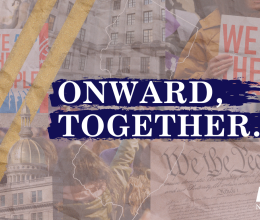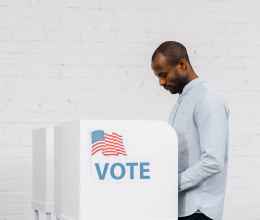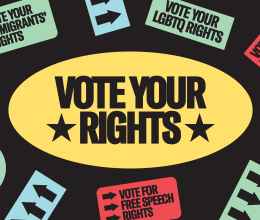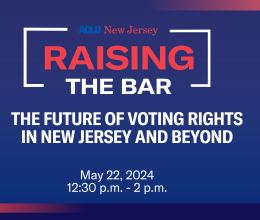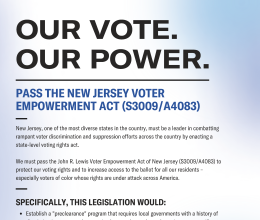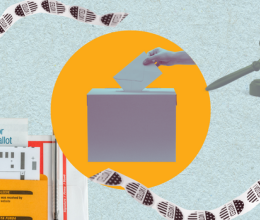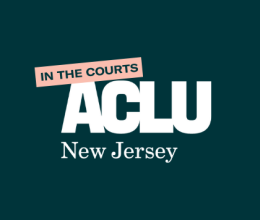
NEWARK – The New Jersey Election Protection Coalition (the “Coalition”) today released a report (the “Report”) analyzing issues New Jersey voters encountered during the November 3, 2020 general election, including in the weeks leading up to it beginning on October 15. A full copy of the Report can be found here.
The Report highlights the challenges posed in an election run during a global pandemic and notes that, despite these challenges, New Jersey administered a safe and sound election. Indeed, the data show significant successes: more than 400,000 voters used a new online voter registration system that launched the month before the voter registration deadline, and turnout was historically high. At the same time, issues reported by voters throughout the state and verified by Election Protection volunteers reveal that the procedural changes necessitated by the pandemic did not always go smoothly and that some longer-term problems resurfaced in this election.
The Coalition consists of the American Civil Liberties Union of New Jersey, the Delaware-New Jersey National Lawyers Guild, Disability Rights New Jersey, the Lawyers’ Committee for Civil Rights Under Law, the League of Women Voters of New Jersey, Lowenstein Sandler LLP and the New Jersey Institute for Social Justice.
“Last year presented challenges to the voting system like no other, and we commend the State for establishing alternative ways for voters to cast ballots in a safe manner,” said the Coalition. “While these modified systems were successful in many ways and allowed New Jersey to experience its highest voter turnout ever, a significant number of voters faced barriers to the ballot – and any vote obstructed is one too many.”
The Report analyzed data collected by the Coalition in three ways: 1) by answering and recording voters’ questions and concerns in call centers; 2) by monitoring social media posts about the election; and 3) by dispatching field volunteers to polling places throughout the state. Details regarding these procedures are included in the Report.
Key findings based on the data collected included eleven issues encountered by New Jersey voters during the 2020 general election:
- Voter registration questions and issues;
- Non-receipt of mail-in ballots or the receipt of incomplete mail-in ballots;
- Misinformation from and mistakes by poll workers, Misinformation on social media;
- Late openings and long lines at polling places;
- Voter intimidation;
- Lack of accessibility for voters with disabilities, medical conditions, or limited English proficiency;
- Unlawful electioneering;
- Lack of voting privacy at polling places;
- Deficient signage at polling places;
- Challenges reaching election officials; and
- Lack of access to court for disenfranchised voters
These findings are detailed in the Report.
“In these most consequential of times when it is more important than ever that people are able to choose leaders who represent their interests, we look forward to working with the state to address all of the challenges experienced by voters in 2020 so that they can be prevented in future elections,” said the Coalition. “New Jersey has the potential to be a model of an inclusive and robust democracy for the nation. We can get there if we work together to expand access to the ballot so that no one, especially historically marginalized people such as people of color and voters with disabilities, is denied the ability to lift their voice through their vote.”
The Report offers fourteen recommendations for addressing the voting issues encountered last year:
- Enact same-day voter registration;
- Expand automatic voter registration;
- Implement and educate voters on new early in-person voting law;
- Improve poll worker recruitment;
- Establish oversight and accountability among poll workers, Formalize responsibilities of “master poll workers” and “lead poll workers”;
- Ensure proper signage at polling places;
- Further restrict law enforcement presence at polling places and drop boxes;
- Improve the ballot-tracking system;
- Improve the system for voters to report election complaints and positive experiences;
- Ensure independent voting rights for voters with disabilities;
- Adopt a formal process for voters who find themselves ill or otherwise incapacitated on Election Day;
- Make telephonic language interpretation available to voters to afford them their rights to reasonable language assistance;
- Improve processes for managing irregular elections; and
- Improve access to court for disenfranchised voters.
The national, nonpartisan Election Protection coalition works year-round to ensure that all voters have an equal opportunity to vote and have that vote count. Made up of more than 100 local, state and national partners, Election Protection uses a wide range of tools and activities to protect, advance and defend the right to vote.
